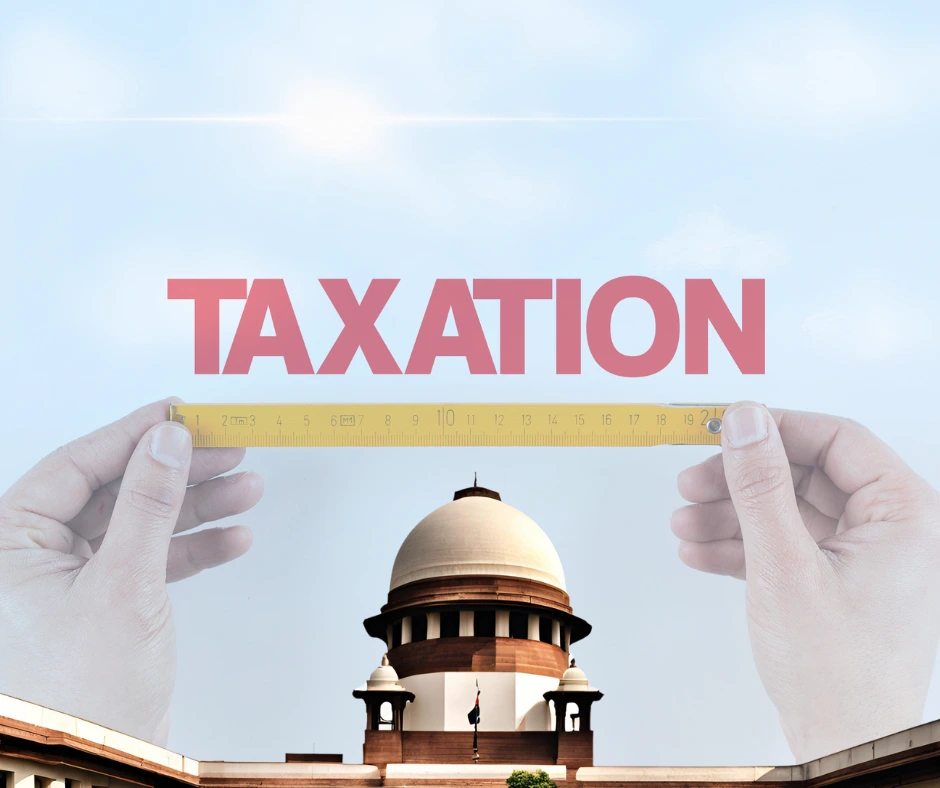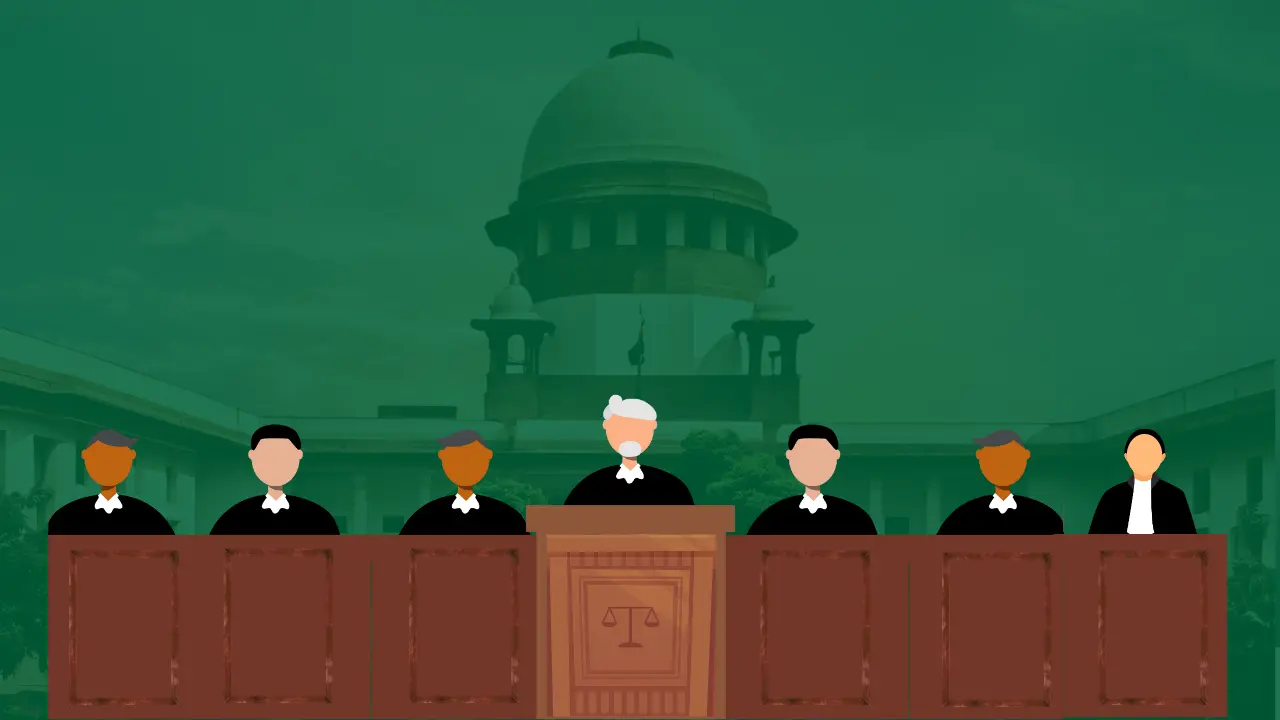The Supreme Court’s landmark judgment in Union of India vs. Rajeev Bansal validates 90,000 tax reassessment notices issued during COVID-19. Learn how TOLA and the Finance Act, 2021, impact tax reassessments.
Introduction
In a landmark judgment, the Supreme Court of India resolved the controversy surrounding 90,000 reassessment notices issued between April 1, 2021, and June 30, 2021, under Section 148 of the Income Tax Act, 1961 (“IT Act”). The judgment, delivered by a three-judge bench in Union of India vs. Rajeev Bansal (Civil Appeal No. 8629 of 2024), comprising Chief Justice of India Dr. D.Y. Chandrachud, Justice J.B. Pardiwala, and Justice Manoj Misra, with the CJI penning the unanimous decision. The bench addressed the validity of these reassessment notices in light of the Taxation and Other Laws (Relaxation of Certain Provisions) Ordinance, 2020 (“TOLA”), which extended statutory deadlines due to the COVID-19 pandemic, despite the new reassessment regime introduced under the Finance Act, 2021.
Facts of the Case
TOLA, enacted on March 31, 2020, extended statutory deadlines for various actions under the IT Act due to disruptions caused by the pandemic. These extensions were further solidified through multiple notifications, with the final deadline for reassessments set as June 30, 2021. Simultaneously, the Finance Act, 2021, introduced a new reassessment process effective April 1, 2021, which reduced the time limit for reassessment to three years and allowed reassessments beyond six years only for cases involving amounts exceeding Rs. 50 lakhs (Rs. 5 million).
The new regime also introduced a crucial provision under Section 149(1)(b), which prohibited issuing reassessment notices for any assessment years before April 1, 2021, where time limits under the old regime had already expired. However, TOLA’s deadline extension until June 30, 2021, created confusion about whether reassessments initiated between April 1, 2021, and June 30, 2021, should follow the old or the new regime.
In a prior decision in the Union of India and Ors. vs Ashish Agarwal, the Supreme Court had ruled that reassessment notices issued after April 1, 2021, under the old regime, should be treated as show-cause notices under the new regime. This solution was designed to account for procedural lapses while allowing the Revenue additional time to comply with the requirements of the new reassessment process. Following this ruling, the CBDT issued guidelines explaining that these reassessment notices would be treated as pre-enquiry notices under the new system, providing clarity on how the Revenue should proceed.
The Question of Law
The main questions in the Rajeev Bansal case were whether TOLA’s time extensions applied to reassessment notices issued between April 1, 2021, and June 30, 2021, and whether reassessment notices issued after June 30, 2021, following the Ashish Agarwal judgment, were valid.
Assessees’ Arguments
The assessees argued that TOLA only applied to deadlines expiring between March 20, 2020, and March 31, 2021, and should not extend beyond that period. They contended that reassessment notices issued after April 1, 2021, should have complied with the new reassessment regime and not benefited from TOLA’s extended deadlines. Furthermore, they highlighted procedural deficiencies in several reassessment notices, arguing that many were issued without proper sanctions from authorities under the new regime. They also argued that reassessment notices issued after June 30, 2021, were time-barred.
Revenue’s Arguments
The Revenue countered that TOLA was enacted to mitigate the impact of the pandemic, extending deadlines for actions under the IT Act, including reassessment notices issued during the disputed period. They emphasized that TOLA applied to the entire IT Act, including the new reassessment regime introduced by the Finance Act, 2021. The Revenue further argued that reassessment notices issued between July 2022 and September 2022, after the Ashish Agarwal decision, were valid and that invalidating these notices would contradict the Supreme Court’s previous ruling.
Supreme Court’s Judgment
The Supreme Court bench, led by CJI Dr. D.Y. Chandrachud, ruled in favor of the Revenue, harmonizing the interaction between TOLA and the new reassessment regime. The Court clarified that TOLA provided temporary relief due to pandemic-related disruptions but did not extend the life of the old regime indefinitely. The Court upheld TOLA’s extension, ruling that it applied to reassessment notices whose deadlines would have expired between March 20, 2020, and March 31, 2021, allowing those notices to be issued until June 30, 2021.
The judgment further confirmed that reassessment notices issued between April 1, 2021, and June 30, 2021, under the old regime, would be deemed valid if the procedural safeguards under the new regime were followed. Additionally, reassessment notices issued after June 30, 2021, were upheld as valid, provided they adhered to the procedural requirements laid down in the Ashish Agarwal judgment.
Sanction Requirements under Section 151
The Court also addressed the sanction requirements under Section 151 of the IT Act, which provides a procedural safeguard against arbitrary reassessments. Under the new reassessment regime, a higher level of authority is required for approval before issuing reassessment notices, offering greater protection for taxpayers. The Supreme Court clarified that while TOLA extended time limits, it did not impact these substantive procedural safeguards.
Implications of the Judgment
- TOLA and the New Reassessment Regime: TOLA applies to reassessment notices where the limitation period expired between March 20, 2020, and March 31, 2021. Notices issued between April 1, 2021, and June 30, 2021, are valid under TOLA if procedural requirements are met.
- Validity of Post-June 2021 Notices: Reassessment notices issued after June 30, 2021, are valid as long as they comply with the Ashish Agarwal ruling, which converted old notices into pre-enquiry show-cause notices under the new regime.
- Substantive Challenges Remain: While the Court’s decision validated these reassessment notices, taxpayers still retain the right to challenge them on substantive grounds.
Conclusion
This ruling from the Supreme Court provides much-needed clarity on the applicability of TOLA and the new reassessment regime, impacting approximately 90,000 reassessment notices. The judgment, delivered unanimously by CJI Dr. D.Y. Chandrachud, Justice J.B. Pardiwala, and Justice Manoj Misra, ensures that reassessment notices issued during the pandemic are valid, while also protecting taxpayers’ procedural rights. The decision is expected to bring finality to ongoing disputes between taxpayers and the Revenue, shifting the focus from procedural technicalities to substantive tax issues.
CONTRIBUTORS
Raghav Dikshit (Associate)
Nishant Walia (Associate)






